Sir Isaac Newton is frequently cited as one of the smartest and most influential people to walk the face of the earth, and for good reasons: He pioneered the study of light and optics, explained the orbits of planets, discovered the universal law of gravitation, and invented calculus all before he was 26. But much of Newton’s studies were directed not towards science or mathematics but towards the occult. Newton versed himself in religious esoterica and alchemical lore and spent the greater part of his life attempting to complete the “Great Work,” the creation of philosopher’s stone. Newton wrote more words on Alchemy and religious mysticism (1,000,000+) than on all his scientific and mathematical works combined. Nevertheless, his interests may not have been so strange, as Newton merely sought the ultimate truths of the universe. While seemingly unscientific, these interests were approached by Newton with the same evidence-based methodology that he used in his study of math and physics. Still, few know the full extent of his spiritual and mystical research, so here are ten crazy secrets of Isaac Newton.
10. Predicted the End of the World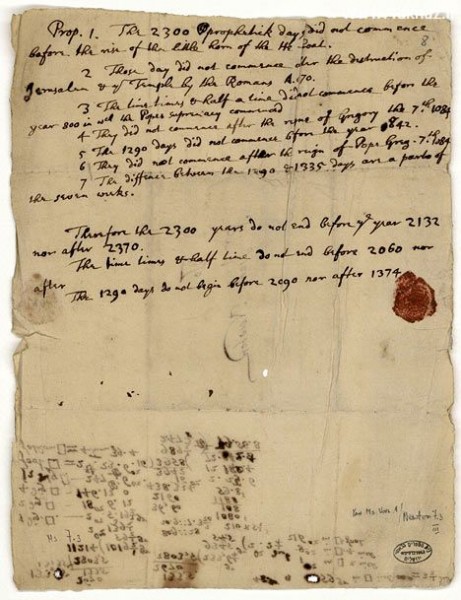
Yes, Newton in fact predicted that end of days would occur in the alarmingly close year of 2060. Well, he didn’t exactly say that. He said the world would end no sooner than 2060. “It may end later, but I see no reason for its ending sooner,” Newton wrote. Newton took a very mathematical approach to determining this: he systematically analyzed the revelatory passages of the Book of Daniel and corresponded the events that he believed had already occurred to their respective dates in the Gregorian calendar. He then found a quasi-pattern between these dates and extrapolated to determine the date of the apocalypse. It’s important to note why Newton did this though. Newton wanted to put and end to the failed predictions that caused mass hysteria in his time. (I think we can all sympathize with Newton on this one.) He wanted to replace these predictions from false prophets with evidence-based predictions. Newton wrote, “This I mention not to assert when the time of the end shall be, but to put a stop to the rash conjectures of fanciful men who are frequently predicting the time of the end, and by doing so bring the sacred prophesies into discredit as often as their predictions fail.” Also, Newton did not necessarily believe the apocalypse was a time of Michael Bay styled explosions and destruction but rather a period of global transition into a better, peace-loving age. On an eerie final note, Newton asserted that not long before the end of days the Jews would return to the holy land.
9. Determined the Chronology of Ancient Kingdoms
Newton loved numbers, order, and ancient civilizations. What better a hobby for the man than calculating the dates when biblical and mythical events occurred and when civilizations of antiquity reigned? In 1728, Newton’s The Chronology of Ancient Kingdoms was posthumously published in London. It is an 87,000-word treatise (think 87 Toptenz articles) in which Newton meticulously interprets Egyptian, Greek, Roman and Biblical texts to form a cohesive account of advanced human history. He compiled nearly 500 sources to back his claims. This work is often lumped with Newton’s occult studies because of the nature of the chronology. He includes mythical characters like Hercules and Oedipus as real people and legendary locations like Troy and Atlantis as real locations. Plus he weaves seemingly disparate religious figures into his chronology as if to say that Greek gods, Moses, and Zoroaster are all part of a single, very real timeline. The full text is available here.
8. Believed Science and Religion Could Coexist
This is probably pretty obvious if you’ve read the last two items considering the amount of time Newton devoted to both areas of study. Newton was deeply religious and although many of his peers were self-proclaimed Christians, they treated religion with nowhere near the amount of dedication that Newton did. Their Christianity was a means to avoid persecution from the Church and an excuse to substitute the words “I have no idea what the science behind this phenomenon is” with “Of course! It is the hands of God that made it this way!” Newton was genuine in his belief in God and believed that science and religion were one and the same, the pursuit of one being the pursuit of the other. He owned more than sixty bibles; many were highly annotated by him. Newton said, “The most beautiful system of the sun, planets and comets could only proceed from the counsel and dominion of an intelligent and powerful being.”
7. Mastered Jewish Philosophy and Mysticism
In the 17th and 18th Century, there was much animosity towards Jews in Christian Europe. Jews were expelled from England in 1290 and were just returning from English exile in Newton’s time. However, some Christian theologians secretly approached Jewish thought as a supplement to enhance their Christian interpretations of God and the Universe. Isaac Newton was one of these individuals. But Newton went far beyond what these few studied. The economist John Maynard Keynes who possessed many of Newton’s unpublished notes and papers called Newton “a Judaic monotheist of the school of Maimonides. He arrived at this conclusion, not on so-to-speak rational or skeptical grounds, but entirely on the interpretation of ancient authority.” Newton became proficient in reading and writing Biblical Hebrew (as a Jew I must say his Hebrew handwriting is quite beautiful) and studied Talmud and Kabbalah. In his annotated copy of Maimonides’ Mishne Torah (still today a central commentary for Jews around the world) he makes reference to the Zohar, the foundational book of Jewish mystical thought, and mentions famous Jewish Rabbis like Hillel and Shammai. Newton’s close friend John Locke recounted a conversation in which Newton explained the creation of matter by God as a process of withdrawing, which Locke, a scholar of theology, recognized as the Jewish mystical concept known as tzimtzum.
6. Believed Greek Myths were Alchemical Recipes
Newton wanted to study the universe in any way he could. Alchemy in its unadulterated form was a quest to understand the natural world and the mysterious principles that guide it. In Alchemical symbolism, elements have Greek God counterparts. So when Newton read Greek myths involving these counterparts, he assumed the Greeks were divulging hidden alchemical knowledge. One example of this is when Newton produced “the net,” an alloy of copper and iron, which was supposedly a first step towards the creation of the Philosopher’s Stone. In Ovid’s magnum opus “The Metamorphosis,” he tells a story involving the gods Vulcan, Venus and Mars. The story goes as follows: The sun tells Vulcan that his wife, Venus, was having an affair with the god, Mars. Infuriated and vowing retribution, Vulcan hung a net from the ceiling, which he placed the adulterers in together as a badge of shame. In alchemical symbolism, Venus represents Copper, Mars represents Iron, and Vulcan represents fire. With this in mind, Newton extracted a simple alchemical recipe. Scientist Bill Newman, intrigued by Newton’s interpretation conducted the experiment himself and got the same result Newton did 300 years prior—a purple alloy with a netlike pattern on its surface.
5. Held Highly Heretical Beliefs
Isaac Newton held certain Christian beliefs that, had he exposed them, would have been very objectionable to the Catholic Church. Newton was a perfectionist and wanted to be absolutely positive that he practiced Christianity in its original and intended form. So he cross-referenced the various translations of the Bible he had and noted disparities among them. While doing this he noted the time a version was written and where it was from. One day, Newton was going through this process with the fifth chapter of the First Epistle of John. He noticed a discrepancy in the versions. The King James version reads: “For there are three that bear record in heaven, the Father, the Word, and the Holy Ghost: and these three are one.” This sentence is the foundation of the fundamental Christian concept of the Trinity: The Father, Son and the Holy Ghost. But Newton noticed something. None of the earlier Greek versions included “and these three are one.” Newton searched the rest of the Bible for evidence of the Trinity but amazingly found nothing. In fact, he found more evidence against it. Newton then completely rejected the Trinity and wrote up twelve points on why the Trinity was nonexistent. In essence, Newton believed Jesus was the son of God, but not God’s equal. He contended that the Catholic Church was erred in its interpretation of Christianity and had returned to idolatry; he supported the Protestant Reformation but thought it had not gone far enough in restoring Christianity. After Newton’s death, all of his works were being sifted through to determine what could be posthumously published. This list of twelve points was discovered with Newton’s theological and alchemical works. Whoever read these texts must have been floored. It was utterly unacceptable for one to believe what Newton asserted with such certainty. It was considered heresy by the Church, so all these writings were placed in a box with “not fit to be published” stamped on it. John Maynard Keynes was the next person to read the texts, when he purchased them in 1936, more than two centuries later.
4. Kept His Most Important Discoveries to Himself
One August day in 1684, Edmond Halley (the guy who computed the orbit of Halley’s comet) gave his friend Isaac Newton an unannounced visit. It proved to be one of the most important encounters in the history of science. Thanks to a Newton confidant, there is a record of the event. “In 1684 Dr Halley came to visit him at Cambridge. After they had been some time together, the Dr asked him what he thought the curve would be that would be described by the planets supposing the force of attraction towards the sun to be reciprocal to the square of their distance from it. (Halley was referring to something known as the inverse-square law, which he assumed was related but did not know how it was) Sir Isaac replied immediately that it would be an ellipse. The Doctor, struck with joy and amazement, asked him how he knew it. Why, saith he, I have calculated it. Whereupon Dr Halley asked him for his calculation without any farther delay. Sir Isaac looked among his papers but could not find it, but he promised him to renew it and then to send it him…” In the words of Bill Bryson, “This was astounding—like someone saying he had found a cure for cancer but couldn’t remember where he put the formula.” Newton also stated that he solved it four years earlier! A few months later, Newton sent a letter to Halley, which he had been working on since Halley had departed. He told Halley how orbits were in fact conic sections, a figure formed by the intersection of a plane and a right circular cone. But before Newton could even do this, he had to invent Calculus! Newton’s initial letter and a second he wrote to Halley were the basis for which Newton wrote his masterpiece, the Philosophiae Naturalis Principia Mathematica. Gale Christianson said of it, “It is the greatest book of science ever written, bar none. It is the most magnificent work, it is the most all-encompassing work. It is the most daring book of any scientific treatise ever written.” His composition of it in the span of about 18 months was considered an intellectual feat unsurpassed in his time. But what if Halley had not asked his question? Would Newton have kept his hugely important knowledge to himself? He had already kept the information to himself for four years. Da Vinci had theorized plate tectonics hundreds of years before it was re-theorized by scientists in the 1950s. Could Newton have kept other key secrets of the universe to himself?
3. Scavenged the Bible for Codes
Newton felt that the Bible was full of hidden sacred wisdom. Newton treated the Bible as a complex cryptogram coded in symbols and mathematics. He thought that deciphering it would reveal an unknown knowledge of how nature works. He even believed the ancient Jews knew the sun was the center of the Solar System! In annotations of an alchemy/biblical manuscript entitled Manna, Newton reflects upon his belief that hidden alchemical formulas were within the bible: “This philosophy, both speculative and active, is not only to be found in the volume of nature, but also in the sacred scriptures, as in Genesis, Job, Psalms, Isaiah and others. In the knowledge of this philosophy, God made Solomon the greatest philosopher in the world.” Newton further believed that Solomon, “the greatest philosopher in the world “ imparted unknown sacred wisdom in his architecture—The First Temple in Jerusalem. Newton was obsessed with it and believed the dimensions, design, construction material, location, etc of the Temple revealed essential mathematical facts, such as how to calculate Pi or find the volume of a hemisphere. He wrote a whole chapter of “The Chronology of Ancient Kingdoms” about his interpretations and observations of the temple. Newton’s source was the description of the Temple in 1 Kings of the Hebrew Bible, translated from the original Hebrew by, you got it, Isaac Newton. Newton contended that the proportions of the Temple of Solomon were sacred. To Newton, the geometry of the temple corresponded to a chronology of Hebrew history and revealed the size of Earth and man’s relative size to it. To Newton, the Temple of Solomon conveyed great truths about man’s function in the world.
2. Sought to Create the Philosopher’s Stone
The cornerstone of alchemical study, the “Great Work” is the study of the philosopher’s stone and the odyssey one undertakes to produce it. The stone among a multitude of things was purported to turn base metals into gold and cure even the most odious of illnesses. It transmuted everything it touched to that object’s most perfect state. Isaac Newton spent approximately thirty years of his life seeking to create it. Newton spent years experimenting with various elements trying to extract each element’s “sulfur,” which can be likened to each element’s specific personality. He spent a huge amount of time experimenting with mercury and antimony (both extremely poisonous) in pursuit of the stone. A DNA test of one of Newton’s hairs found that Newton had 40 times more mercury in his hair than an average individual. Newton’s eccentricity in his later life has been attributed to mercury poisoning. Why did he devote so much time to the “Great Work?” Perhaps Newton felt a certain degree of vindication in studying alchemy, as we will see what his studies generated…
1. Based his most important discoveries on Alchemy
Two of Newton’s greatest discoveries, gravity and the composition of white light, have been attributed to alchemical thinking. Newton believed in invisible spirits, or what the alchemists called active principles, that governed the universe. Scholars have accepted the fact that the concept of active principles unquestionably allowed him to conceive gravity. Why does the Earth rotate the sun? French philosopher Rene Descartes claimed that an invisible fluid, which was circulated by the rotation of the sun, caused it. Scientists of Newton’s time had rejected the astrological notion (pun not intended) that forces could have influences across empty space. Instead impulses had to be transmitted by the contact of two objects. So any force the sun exerted on the Earth was through a medium. But Newton’s calculations proved to him that a fluid medium was impossible. In alchemy, the idea that objects could influence each other from a distance was a tenet of the “science.” Newton, unlike his peers, believed that non-material influences affected the physical, tangible world. They were called “spirits” in alchemical and astrological terms. These “spirits” acted from a distance and existed within a mass. What they supposedly did was trigger “active principles” within an object and produced a variety of results. Newton thought, “well maybe something the Sun has (the Sun’s active principle) triggers something within Earth (Earth’s active principle) from a distance.” He soon created a simple mathematical equation that described the behavior of gravity devoid of any fluid medium. Newton called gravity “action at a distance” because it worked across empty space. He substituted the word “spirit” for the word “force.” No sooner did he realize his equation also revealed that the “active principle” was mass. In replacing his terminology, he had masked his alchemical trail.
Another alchemically influenced theory is Newton’s theory of the composition of light. The idea that white light contains the whole ROYGBIV rainbow spectrum is, even today, difficult to comprehend. So when Newton claimed this, it was difficult to understand his thought process. Yes, he did operations that proved his theory but why did he reject the common explanation in the first place? Modern scholarship has revealed that Newton’s analysis and resynthesis of white light owes a debt to corpuscular alchemy. In alchemy, there is a concept that certain materials will yield a range of greater substances when separated and recombined. The “first matter” of the philosopher’s stone is said to be an ordinary material that can be transformed if it’s component parts are separated and recombined correctly. With this logic, Newton theorized that white light holds within it the entire visible spectrum; that all colors can spawn from common light by means of separation and recombination. There are other examples even beyond Newton, which reveal the vital importance of alchemy in the scientific revolution. It was not the rise of rational thinking that made the Age of Enlightenment accomplish what it did. It was quite the opposite. It was Alchemy.
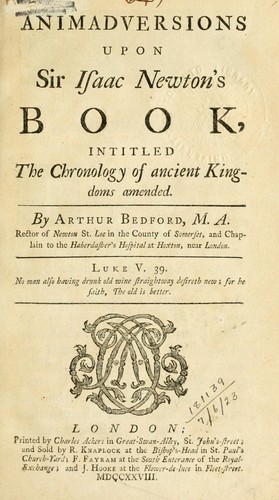
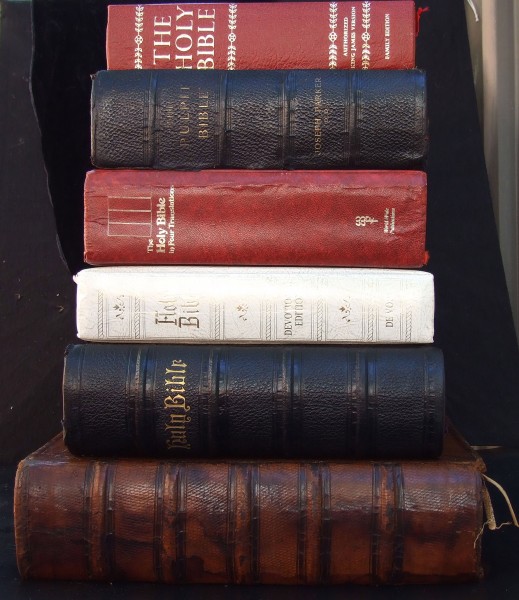
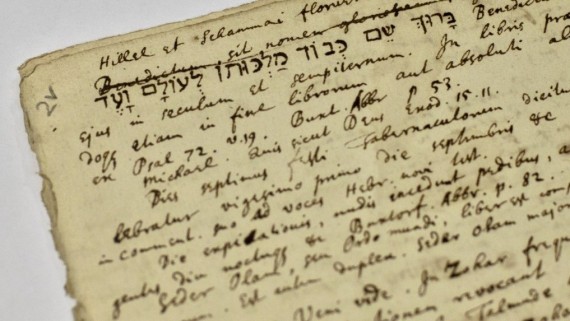
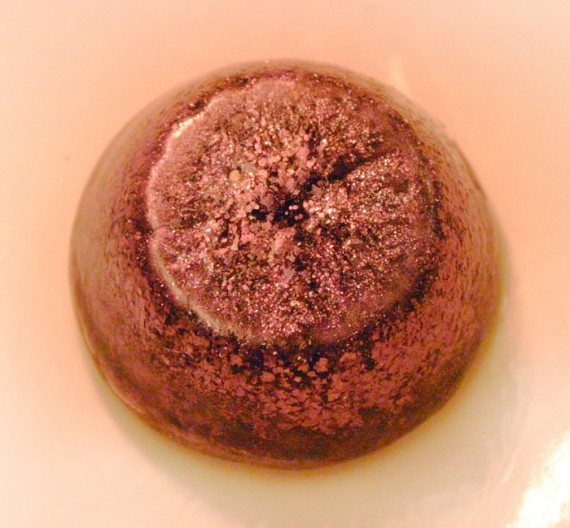
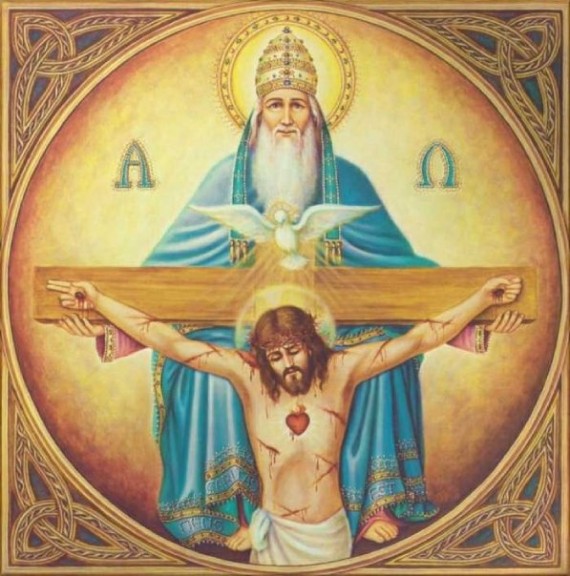
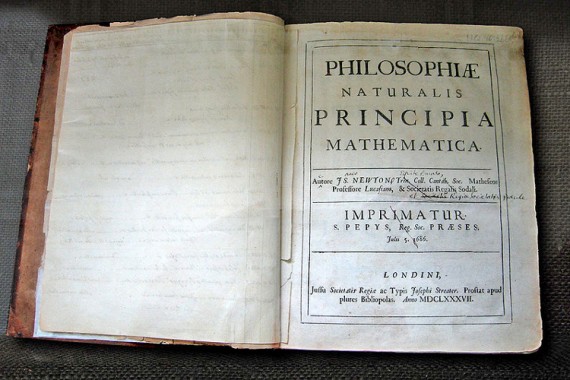
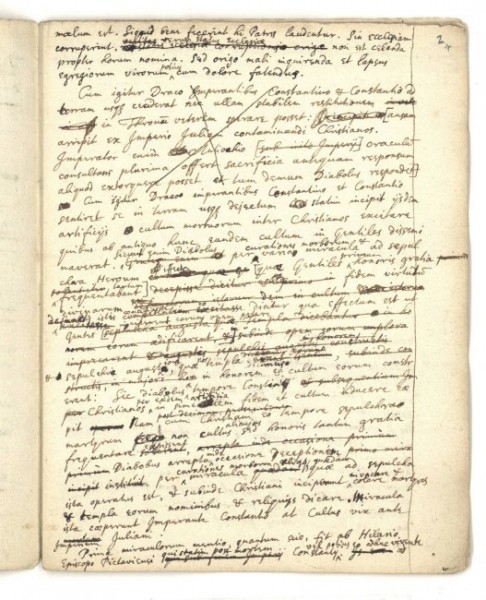
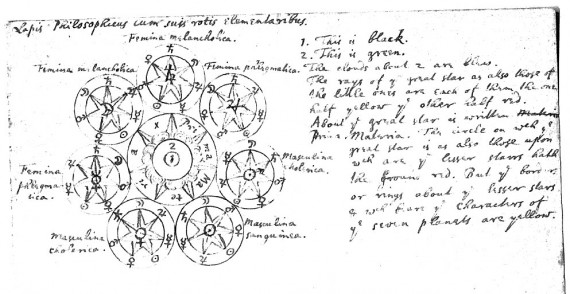
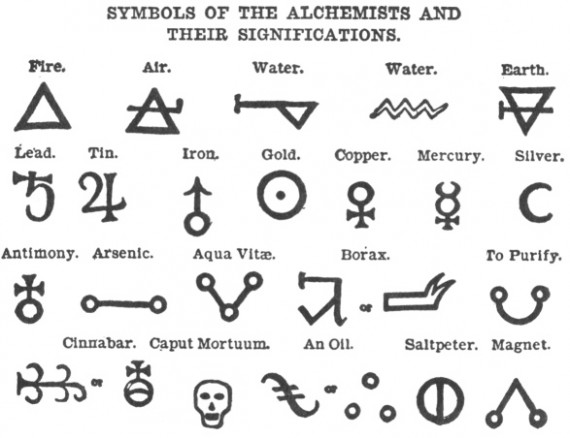
5 Comments
Several things unknown and unheard about the great physicist and mathematician!!! A very interesting read!! Thanks for sharing!
A very nice collection to Newtons record, Newton’s philosophy about religion goes very close to ISLAM, the scientific facts mentioned in The Quran fourteen hundred years ago are all proved to be right, as earth is not the center of Universe and all the stars are in motion…….
The so-called scientific facts mentioned in the the Qu’ran are far from correct and resemble more the Grecian understanding of science which Muhammad would have been familiar with (probably hearing about it in his mercantile journeys as he was illiterate).
http://www.islam-watch.org/syedkamranmirza/Erroneous-Science-and-Contradictions-in-Quran.htm
For such an ardent Biblical scholar as he tried to be it seems odd that Newton would deny the Trinity, especially denying the Lord Jesus’ divinity of which the Bible is quite clear on (cf. John 1:1, Philippians 2:6, John 5:58) as well as the early Church Fathers , for instance St. Ignatius of Antioch (a disciple of St. John who died around the year 110 A.D.) begins his epistle to the Smyrnaeans as this, “I glorify God, even Jesus Christ, Who has given you such wisdom.”
1) Not adding the trinity doctrine to the Bible does not mean that one denies the divinity of Jesus. Jesus, before he became flesh, was divine (mighty) in his being, similar to the angels, who are also divine beings. (Psalm 8:5; John 1:1; Hebrews 2:7) Since Jesus said that his God and Father (Ephesians 1;3) is the only true God (John 17:1,3) and since Paul identifies the “one God” who is the source of all (hence Supreme in his being) as being the Father (1 Corinthians 8:6), the default reasoning is that the Greek word transliterated as THEOS as applied to the Word in John 1:1 is not in the sense of Supreme Being, but of mighty being.
2) There is nothing in John 1:1; Philippians 2:6 or John 8:58 about a triune God. The God of Abraham, Isaac and Jacob is no where in the Bible presented as being more than one person. No scripture says that Jesus is the God of Abraham, Isaac and Jacob, despite how much many like to read such a thought into many scriptures.
3) The early church fathers, that is, Jesus and his apostles, no where presented any idea that the God of Abraham, Isaac and Jacob, is more than one person, or that Jesus is the God of Abraham, Isaac and Jacob.
We do not have Ignatius’ original autographs, and what we have may all be forgeries and/or altercations. Nevertheless, I could not find anything in the writings attributed to him that claims that the God of Abraham, Isaac and Jacob is more than one person, or that Jesus is the God of Abraham, Isaac and Jacob. Due to exalted position and power that the only true Supreme Being has given to Jesus, Jesus is certainly ‘our god”, our might, strength, ruler.
http://jesusnotyhwh.blogspot.com/2016/11/ignatius.html